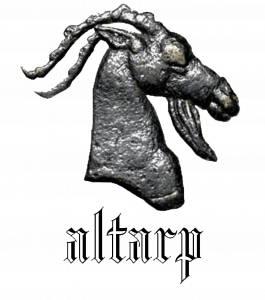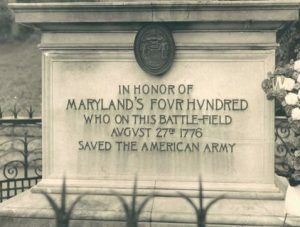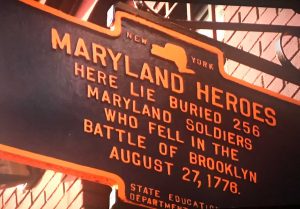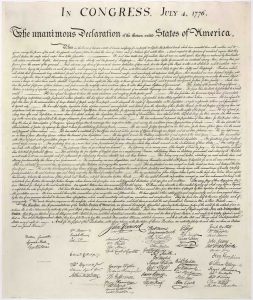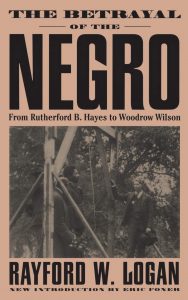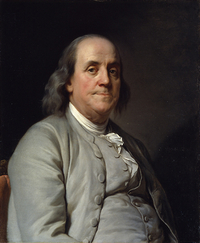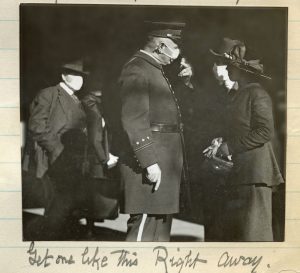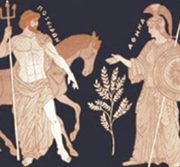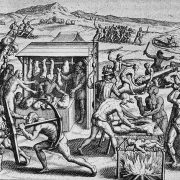Why would it be even necessary to ask such a stupid question?
Of course self-defense is a natural right and to think otherwise is further evidence of a distorted view of reality prevalent among some factions of society in the United States. Denial of physical and biological reality is finding its way into public discourse in ways that should sound alarm bells for people who believe in personal Liberty and its attendant Responsibility.
Tools for Self-defense are Highly Regulated
Despite the Second Amendment to our Constitution, the rights of citizens to keep and bear arms, including knives, swords, bows and arrows, pistols, rifles, shotguns, AK-47s, machine guns, rocket propelled granades, tanks, fighter aircraft, and nuclear bombs has been and continues to be highly regulated. If self defense is really a natural right, to what extent are we able to exercise that right if the tools we may depend on are denied us? What tools may we rely on besides our teeth, fingernails, fists, and ability to run slower than the wind on a calm day?
Biological Basis of Human Existence
The fact that we are alive is all we have. We exist individually and as a species for just a brief moment on the planet we call earth whose age is almost beyond our comprehension.
Postulating an existence beyond this life further complicates how we interpret our conscious existence. Martyrdom is the antithesis of self-defense, but so is altruistically sacrificing one’s life to save another.
Everything we own, people we know, our ancestors and posterity, real and imagined, are part of our brief trip through life. Most of us will do everything possible to preserve our lives.

Byzantine-era mosaic of a gazelle in Caesarea, Israel
Other living beings also do everything possible within the limits of their physical abilities to stay alive. Gazelles can run in bursts as fast as 60 mph as they try to outrun a pursuing carnivore that depends on catching the gazelle for food to stay alive. Gazelles eat grass and run to stay alive. Lions run to catch and eat gazelles to stay alive. All plants and animals that survive in their environment have developed survival mechanisms to keep them alive long enough to reproduce.
Humans are not alone in banding together to help each other survive. Animals hunt cooperatively in packs for food. Water Buffalo and Wildebeests defend the herd with their formidable horns. Chimpanzees and monkeys cooperate on many levels to find food and defend each other.
Humans are not alone in defending one-another at the peril their own lives, but humans do appear to be alone among living things when they invent language and words to express intangible ideas like rights, natural rights, natural law, social contracts, constitutional law, statuary law, common law, and regulatory law. Humans hold the law of the jungle in disdain until they couch it in terms like natural law. The law of the jungle sounds harsh. Natural law sounds like the words of an enlightened philosopher. But the law of the jungle clearly allows for both self-defense and the common defense. And so does natural law. They are the same.
Natural Rights
Political theorists and philosophers have long argued that human beings have natural rights. Thomas Hobbs was one such philosopher who stated in his work, Leviathan, that individual humans have a natural right to survive but unless there were some kind of government to protect them life would be “solitary, poor, nasty, brutish, and short.” A gazelle may agree.

Portrait of Thomas Paine
Thomas Paine was a philosopher, political theorist, and influential voice in the American Revolution. He wrote a clear definition of natural rights when he said. “Natural rights are those which appertain to man in right of his existence.” He went on to say, ” Of this kind are all the intellectual rights, or rights of the mind, and also all those rights of acting as an individual for his own comfort and happiness, which are not injurious to the natural rights of others.”
Paine defined civil rights as those, “which appertain to man in right of his being a member of society. Every civil right has for its foundation, some natural right preexisting in the individual, but to the enjoyment of which his individual power is not, in all cases, sufficiently competent. Of this kind are all those which relate to security and protection.”
Paine addressed Hobbs’s observation that without the protection of society, humans would be left to defend themselves against insurmountable odds. It is within the context of understanding and agreeing with Paine’s definitions of natural rights and civil rights that the Founders drafted the U.S. Constitution.
Natural Rights in the Constitution
When the Founders were drafting the Constitution, they had to juggle conflicting interest of many factions all of whom had rights and privileges that they wanted to defend. State’s rights were high on the list. Freedom was a difficult objective if it included freedom for everybody. Slavery was an issue that was left for a later time because at that particular moment in history it was necessary to craft a grand compromise.
If it were not for the Amendments to the Constitution known as the Bill of Rights, it would have been impossible to have ratified the Constitution. Most people in that day assumed that people naturally had rights, whether they called them natural rights or not, and that a legitimate government must protect the rights of the people. They were certainly aware that civil law can easily conflict with natural law when the King quartered his troops in the houses of the colonists. That conflict between the King’s civil law and natural law prompted the inclusion of the now immaterial amendment number 3.
Life, Liberty, and Property
John Locke was the English philosopher who expanded on ancient discussions about natural law when he wrote that the most important natural rights are Life, Liberty, and Property. His writings may have been the single greatest influence that shaped the creation of our limited constitutional government. He asserted that natural law can be discovered through reason alone. An aspect of natural law that he stresses here is each individual’s duty to preserve himself, and then when sufficiently secure in his own safety, he should strive to secure the well-being of others:
“Every one, as he is bound to preserve himself, and not to quit his station wilfully (sic), so by the like reason, when his own preservation comes not in competition, ought he, as much as he can, to preserve the rest of mankind, and may not, unless it be to do justice on an offender, take away, or impair the life, or what tends to the preservation of the life, the liberty, health, limb, or goods of another.” John Locke (1632-1704) – The Two Treatises of Civil Government
Self-preservation is not just limited to saving our lives, but also our liberty, health, limb, and goods. This is why some states have codified the justifiable use of force to include defending the lives, health, and property of ourselves as well as others.
Constitutional Protection of Natural Rights to Self-Defense
Self-defense is often more than protecting only physical safety. We have the right to verbally protect ourselves from what others may say to us or about us. President Trump famously does so using social media.
The first amendment to the Constitution in the Bill of Rights prohibits the government from stifling our speech. Around the world and in some quarters in the U.S., there are factions who want to outlaw certain types of speech that they deem offensive. Pejorative but highly subjective labels like “Hate Speech” are used to justify their attempts to ban speech, publication of such language, or assembly where such ideas are expressed.
The second amendment following right after the important first amendment prohibits government from interfering with the right of the people to defend themselves by force of arms. Humans are not well suited to defend themselves physically without weapons. When violence is necessary to defend ourselves and others, we have a natural right to do so.
A Supreme Court (opens in PDF) decision reaffirmed that the right to keep and bear arms is a personal right. The mention of the militia in the amendment is a slightly archaic way of asserting Locke’s argument that while securing our own safety, we “ought,” as much as we can, to join together to “preserve the rest of mankind.” When Locke says we “ought” to defend others, is he implying that we have some kind of moral duty to do so, or is it just his opinion?
There are many who believe that ethics and morality are ideas hatched in the minds of humans, while others bestow more authority on such ideas by claiming they are mandated by a creator. This is an argument that is bound to go on as long as humans have ideas that they think are original and try to impose their ideas on others, whether through gentle persuasion or outright aggression. Both methods seem to be part of human nature.
A Moral Argument for Self-Defense
Are there objective standards to establish what is moral or are all moral judgements necessarily subjective? Go back to the Gazelle being pursued by the Lion. Both are doing what the nature of their existence dictates that they do to stay alive.
If you decide that you will protect the helpless Gazelle by shooting the lion, the Gazelle runs safely away. Suppose instead you shoot the Gazelle and treat the lion to an easy meal. Whichever decision you made was likely based on some preconceived notion or bias. Is either a moral decision? Animal conservationists would probably claim that both actions are immoral. Let nature take its course.
Suppose again that you see a lion attacking a park ranger. You would surely shoot the lion to save a fellow human.
The ranger could fight the lion with all his strength but unless he, or you, is in possession of a weapon that is more deadly than the lion’s awesome jaws and claws, both you and the ranger would likely become a meal for the lion. These examples involve a limited number of individuals defending themselves from imminent death. Morality does not weigh heavily on the instinctive decision to defend individual lives.
Where Self-Defense is not a Natural Right in the U.S.
Most would argue that we have a natural right to defend our individual lives through the use of deadly force. If I have a handgun with 15 rounds of ammunition, and I am set upon by three murderous assailants and I am able to kill all three, most would agree that I had the right to defend myself. But they would be wrong. A natural right does not translate into a legal right in many jurisdictions. And in some jurisdictions, having 15 rounds is illegal.
Arkansas, Connecticut, Delaware, Maine, Maryland, Massachusetts, Minnesota, Nebraska, New York, New Jersey, North Dakota, Ohio, Rhode Island, Vermont, Washington DC, and Wisconsin (15 States) require you to run from an assailant if you are in public, even if you are suitably armed and able to defend yourself. They call it a duty to retreat. Hopefully if you run but have to stop to defend yourself, the judge or jury will believe that you retreated to the extent required by law before exercising your natural right of self-defense.
Running is all the Gazelle has and they can easily outrun a lion unless ambushed. You cannot outrun or retreat fast enough from most assaults. You may have only a split second to defend yourself. Duty to retreat imposes and additional burden of proof to defend yourself from potentially unjust charges.
Stand-Your-Ground States
Twenty-eight (28) states are called stand-your-ground states: Alabama, Alaska, Arizona, Florida, Georgia, Idaho, Indiana, Iowa, Kansas, Kentucky, Louisiana, Michigan, Mississippi, Missouri, Montana, Nevada, New Hampshire, North Carolina, Oklahoma, Pennsylvania, South Carolina, South Dakota, Tennessee, Texas, Utah, West Virginia, and Wyoming. Seven (7) other states are not statutorily stand-your-ground states, but do not require a strict duty to retreat: California, Colorado, Illinois, New Mexico, Oregon, Virginia, and Washington. In these thirty-five states, you do not have a duty to retreat and grand juries are more likely to find that your use of force was justified if the circumstances demonstrated that you clearly felt your life was in imminent danger.
Even in stand-your-ground states, it is logical to avoid deadly force whenever possible. Display a weapon, issue a strong warning, and if you are in fear of your life, do what must be done. Save yourself.
Proportional Defense

AR-15 Semi Auto Rifle 5.56 NATO
People using weapons such as firearms need to train themselves in their use as one would with any tool. The idea of proportional defense suggests that the defense should be proportional to the threat. If a person has a weapon but is not skilled in its use, it is doubtful that the defense will be proportional to the threat. If a person is skilled in the use of weapons but has an inferior weapon, the defense may not be proportional to the threat.
This idea has important ramifications in the on-going debate about so-called assault weapons. A handgun is often sufficient for self-defense, but when the level of threat increases, the tools available for defense have to increase accordingly. A small caliber semiautomatic weapon like the popular AR-15 looks scary to some people but it may be enough to intimidate a would-be aggressor without ever having to fire a shot. If a more robust defense is necessary, the AR-15 is capable of projecting greater force at a greater distance than a handgun.
A large unarmed man threatening a small woman with a knife is not proportional. She may easily be overpowered, disarmed, and stabbed with her own knife. A small person aggressively confronted by a much larger person may need a firearm to mount a porportional defense. In 1872, the Colt New Model Army Metallic Cartridge Revolving Pistol became known as the Equalizer because it allowed individuals to protect themselves from multiple or more powerful assailants.
Today’s equalizers can be found in such modern firearms as the AR-15 designed by ArmaLite in the late 1950s. The design was later sold to Colt who successfully launched the fully automatic version M16 as a military personal defense weapon. In 1964 Colt began to offer the semiautomatic Model R6000 Colt AR–15 SP1 Sporter Rifle in the civilian market.
People who use a firearm should be very familiar with the meaning and limitations of proportional defense. Often simply displaying a firearm with enough resolve will stop an aggressor. Retreat if you can safely do so. Give warnings. But don’t sacrifice an advantage because of indecision. Most aggressors already know what they are going to do and you don’t unless you have practiced using the tools of self-defense.
Other Tools for Self-Defense
Self-defense does not always involve firearms. A simple walking stick in the hands of a healthy person may ward off an opportunistic attacker. Police style tactical expandable steel batons are easily carried and concealled in a woman’s purse. Stun guns and pepper spray may be useful in some circumstances but they are often over-rated and can provoke an even more violent attack by a large aggressor.
Knives are very effective at close range but like any tool, a person carrying a knife should learn how to use it for self-defense. Blade lengths dictate what may be legally carried in some jurisdictions. What ever happened to swords?
 A folding pruning saw is a very effective self-defense weapon that is usually considered to be a garden tool. They are incredibly sharp. Carried in a car, it is highly doubtful that it will be questioned as a weapon, especially if it has a few green stains on it from cutting branches. Leave it laying on the floor along with a few rusty garden tools.
A folding pruning saw is a very effective self-defense weapon that is usually considered to be a garden tool. They are incredibly sharp. Carried in a car, it is highly doubtful that it will be questioned as a weapon, especially if it has a few green stains on it from cutting branches. Leave it laying on the floor along with a few rusty garden tools.
WARNING: This discussion of firearms, saws, knives, or other devices in not intended to suggest that you may legally possess or use any of these devices where you reside. The Constitution is a wonderful document meant to protect our rights, but local and state governments routinely infringe on what we may consider to be a right guaranteed under the Constitution. It is up to citizens to lobby their elected representatives to change the laws when laws no longer serve or protect the people.
Brass Knuckles are legal for self-defense in most states, but even Texas outlawed them at one time, along with California, Illinois, Michigan and Vermont. Now Texas has seen the error of its ways and will allow brass knuckles, clubs, and those cute wild kat keychains to be used for self-defense. In South Carolina it is illegal to possess brass knuckles only if “they are used with intent to commit a crime.”
A Few Self-defense Tools

A Kubotan is a 5 inch keychain stick that can inflict painful wounds. They are generally legal everywhere except on airplanes even if made of Lexan.

This ice pick has a threaded cover. It is also unsuitable for travel on airplanes. Its stainless shaft is 2.68 in long. It is not a knife and may presumably be carried for defense in Seattle, WA. But is it a dangerous weapon in WA State under RCW 9.41.250?

A Seattle, WA city ordinance declares it illegal to “carry concealed or unconcealed…any dangerous knife,” defined as a knife with a fixed blade longer than 3-1/2 inches.

Knife Length Laws in the United States
The American Knife & Tool Institute (AKTI) incorporated in the state of West Virginia in 1997 as a 501(c)3 national nonprofit advocacy and education organization embracing every segment of the knife industry. Prior to the AKTI’s pioneering efforts, laws regarding knives in the U.S were hopelesslyconfusing. This is beginning to slowly change as states and municipalities reform their laws to conform to uniform definitions and standards promoted by AKTI. Some of their success can be seen on the AKTI Website HERE.
In 2005, AKTI published their Knife Measuring Protocol, which was the first time standard definitions were applied to knives. Since then numerous states have updated their laws to give citizens a clearer picture of which types of knives are legal under varying circumstances.
AKTI provides information about which knives are forbidden or prohibited under state law; which knives cannot be sold or other restrictions on sale or manufacture; and which knives may be carried and whether concealment is an issue.
Click HERE about knife laws in your state. (Opens in a new window)
Although the information provided by AKTI is not considered legal advice, it is a good place to start to understand what restrictions states have placed on weapons, including knives. Consult local law enforcement, an arms dealer, or qualified attorney in your state to better understand the details of local laws.
For those who do not have the patience to read long boring discussions:
What tools may we rely on besides our teeth, fingernails, fists, and ability to run slower than the wind on a calm day?
In the U.S., and apparently in the whole world, there is a constant fight between the Left, who instinctively deny the existence of a biological human nature, and the Right, who dogmatically assert that Darwin was correct and Utopia is the greatest threat to individual Liberty ever contrived in the Minds of Men.
The Left instinctively wants to disarm the populace, provide cradle to grave security, and eliminate all crime, dissension, mental illness, poverty, and unhappiness.
The Founders of our Republic were pragmatists, , brave and realistic. They knew that if the Revolution against the English Monarchy failed, they would all hang. There would be no appeal to a benevolent court. Enshrining individual Liberty in a new nation was their goal. Correcting the errors of the past, including slavery, would have to wait for subsequent generations to achieve by using the Freedoms that the Founders bestowed on their posterity. We are that posterity.
We have an obligation to understand why we have what has been given to us.
John Locke (29 August 1632 – 28 October 1704) had already made his huge contribution to human understanding of nature. Adam Smith (16 June 1723 – 17 July 1790) provided the bones to what would become an economic miracle, Capitalism. Karl Marx came later. His legacy is one of destruction and on-going dissention,
Some of the concepts we should understand relate to the basic biological nature of our existence: Natural Liberty, laissez-faire, the Invisible Hand, self-interest, division of labor, universal opulance, ‘the system of natural liberty.’ We do not want to get carried away talking about economics when we are trying to show that natural law gives us the right and duty to defend ourselves and allow us to have access to the tools to make it not only possible but easy. It’s just that liberty, economics, and self-defense are all tied together.
So we will make one last reference to a modern philosopher who is seldom given the credit he deserves: Malcome X said, “I am not against using violence in self-defense. I don’t call it violence when it’s self-defense, I call it intelligence.” In his 1964 speech he stated: “We don’t do anything illegal.”
Indeed the Second Amendment gives us an individual right to arm ourselves in defense of ourselves, our property, and our fellow beings. The problem is that other people and even our own governments try to take these rights away from us under whatever guise is popular at the time. Right now in the summer of 2019 after several well publicized murders, frantic utopian Leftists are again crying for a general disarmament. So we too must continue to defend ourselves in the political arena and keep the pressure on our elected representative to protect the Constitution.
So what types of arms are appropriate and who should have them.
Who Should have Them?
First, society has a right to protect us collectively, so there are people who should not have weapons, and there are people who should not have their personal freedom. They should be locked up. But if we cannot lock them all up, we individually must have the means to defend ourselves from them, and we must support those whom we hire to defend us, the police, the FBI, ICE, the military, etc.
Background checks are reasonable and may be strengthened with technology, but safeguards must be built in to prevent background checks from infringing our rights. Protection orders are also a logical defense of public order. It’s already in Federal Law. Gun violence Emergency Protective Orders are also appropriate if the are not abused.
What Types of Arms
Firearms
Because the principle of proportional defense always applies, the type of weapon available in the hands of a law-abiding citizen should be capable of meeting any potential threat. If the treat does not measure up to the available weapon, the law-abiding citizen is the one to decide proportionality by limiting the use of the weapon to the actual force needed. This is why any semiautomatic weapon with any magazine capacity should not be banned. We need to have them if necessary and we are free to limit their use.
The present laws of taxing fully automatic weapons, although infringing to some degree, is not causing too much hardship. If a situation arose where more people need to have automatic weapons, current access to semiautomatic weapons could fill in the gap until more appropriate weapons for the new threat are made available. To legally own a fully-automatic weapon now requires three things: time, money, and a spotless criminal record.
The bottom line is this: All rifles, shotguns, and handguns, of any caliber presently available, and magazines of any capacity should be available in commerce, subject to reasonable regulations. Many states currently impose unreasonable regulations, particularily in the states of California, New York, New Jersey, Maryland, Ikkinois, Hawaii, and Massachuetts. The City of Washington DC also abuses citizens rights.
Other Weapons
Any device, concealable of not, that can be safely deployed to protect an individual against aggression by another should be freely available in all the trritory of the United States. Most weapons of this sort should be small and easily accessable. Three of our favorite are pictured above.
Swords, pikes, and large weapons like maces, hatchets, and hammers are obsolete in most circumstances. Hatchets, hammers, saws, screw drivers, ice picks, kitchen knoves, and other tools can make excellent weapons in a pinch. Their possession for any reason should not be restricted.
Chemical and Electrical Weapons
In the right hands, such as law enforcement trained in their use, weapons like mace and TASER can be effective. TASERS are not legal in all states. DC, HI, MA, NJ, NY, and RI ban the civilian sale of TASER weapons. CT, IL, MI, and WI are legal with certain restrictions and requirements. We disagree with the rationale for banning them in those states.
These weapons are used to de-escalate a violent situaltion, but the person deploying the device needs to be prepared if the violence does not de-escalate. What if ist gets worse? A law enforcement officer carries the equipment to take it to the next level and we believe that civilians using these devices must also be prepared to respond if the Taser or mace doesn’t work.
They have drawbacks that should be considered. Some TASER devices look like pistols and in the dark may be mistaken for a firearm. Why not just carry a firearm and follow firearm safety procedures, including properly identifying yourself to a law enforcement officer and following directions.
We believe that pepper spray and many low power electrical devices are not effective enough to be reliably deployed. Take a professional self-defense class to learn what is worthwhile.
